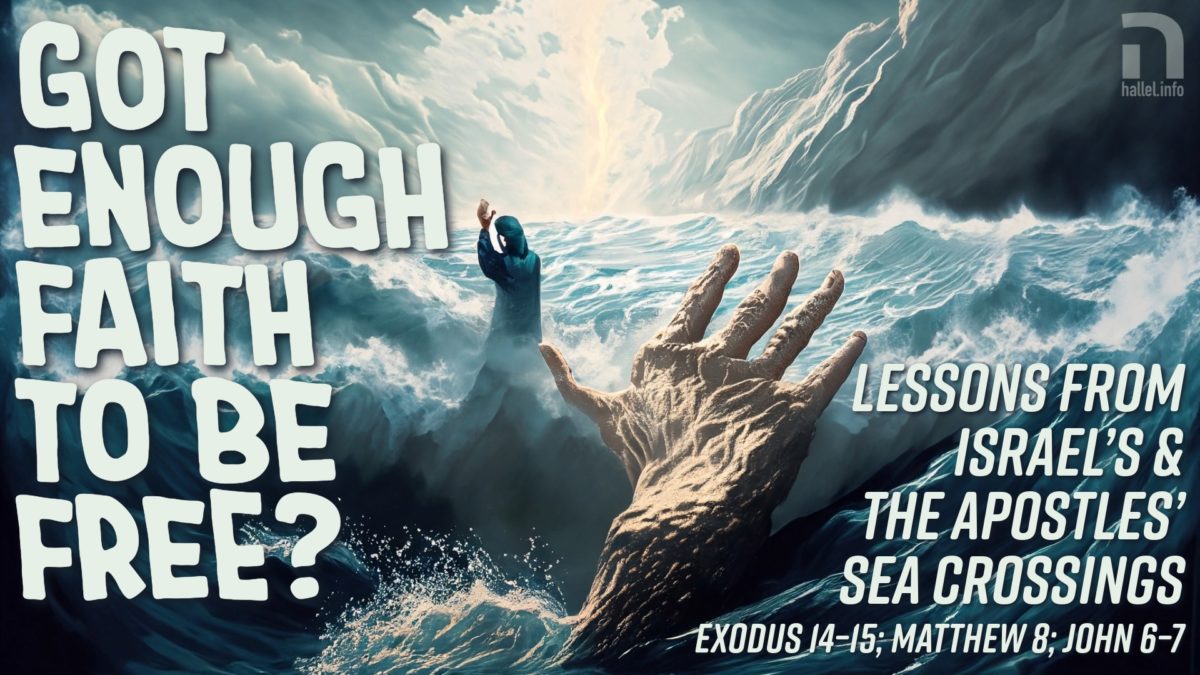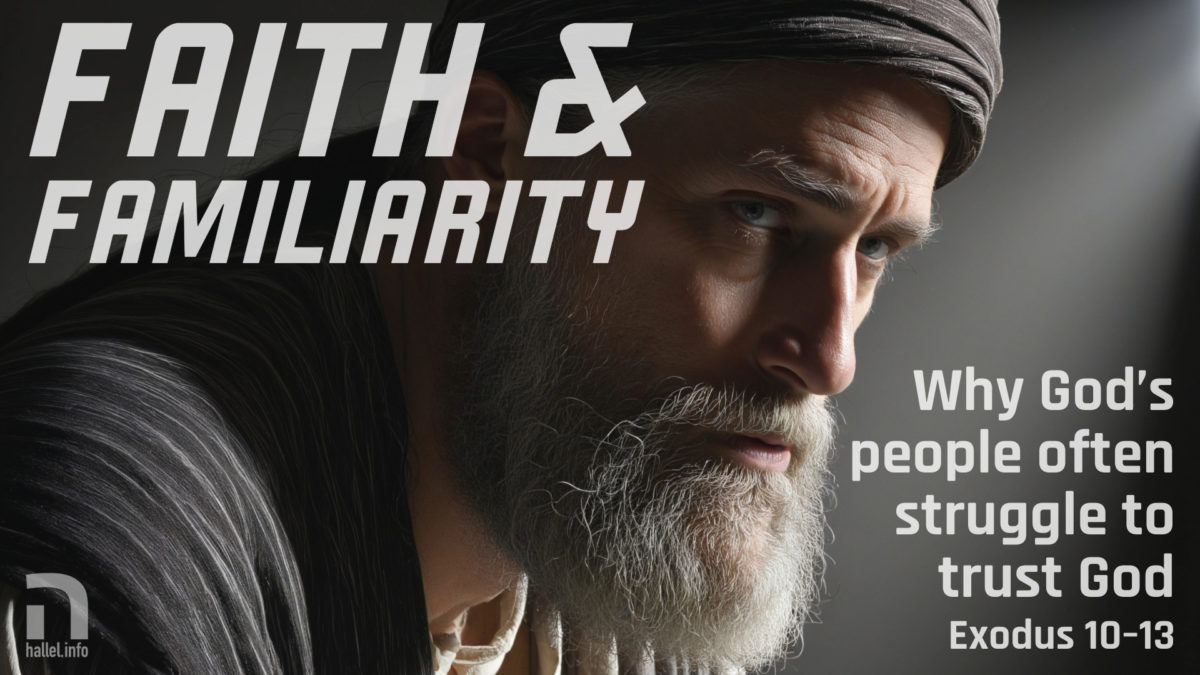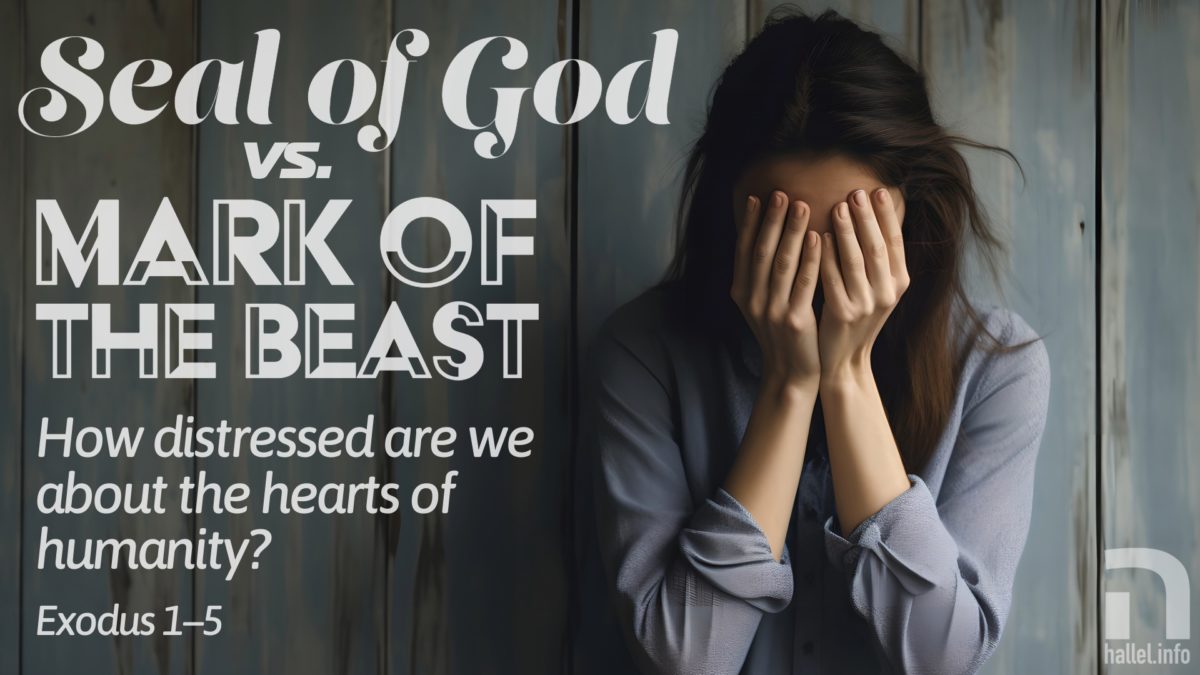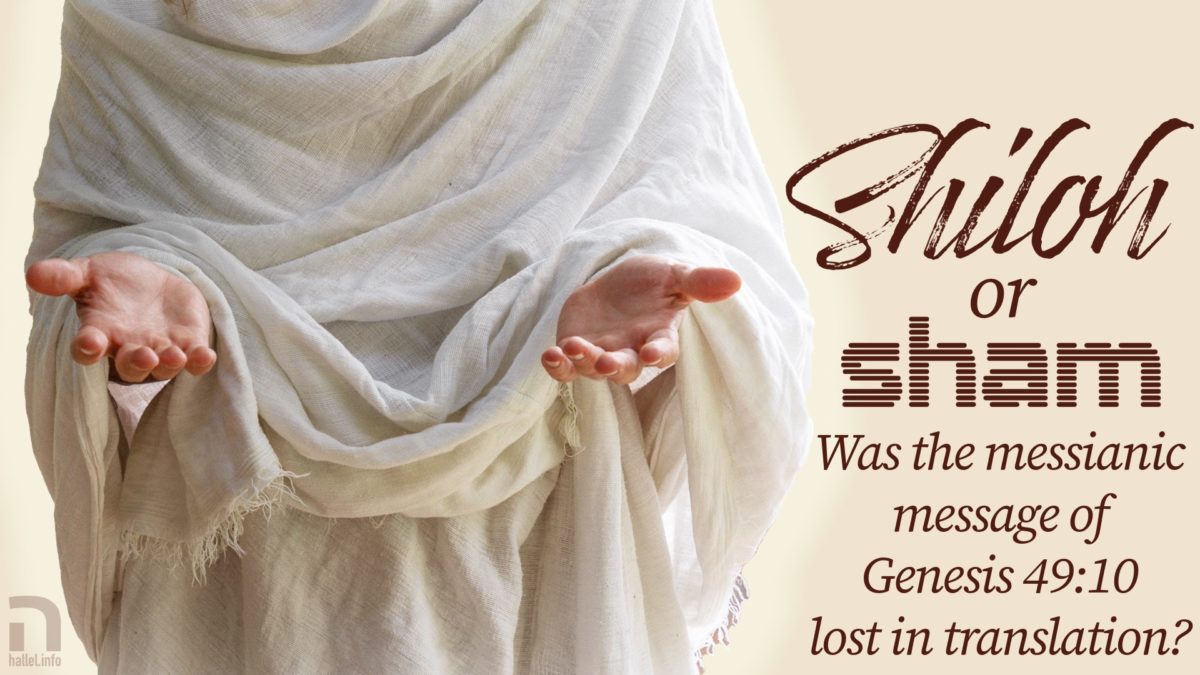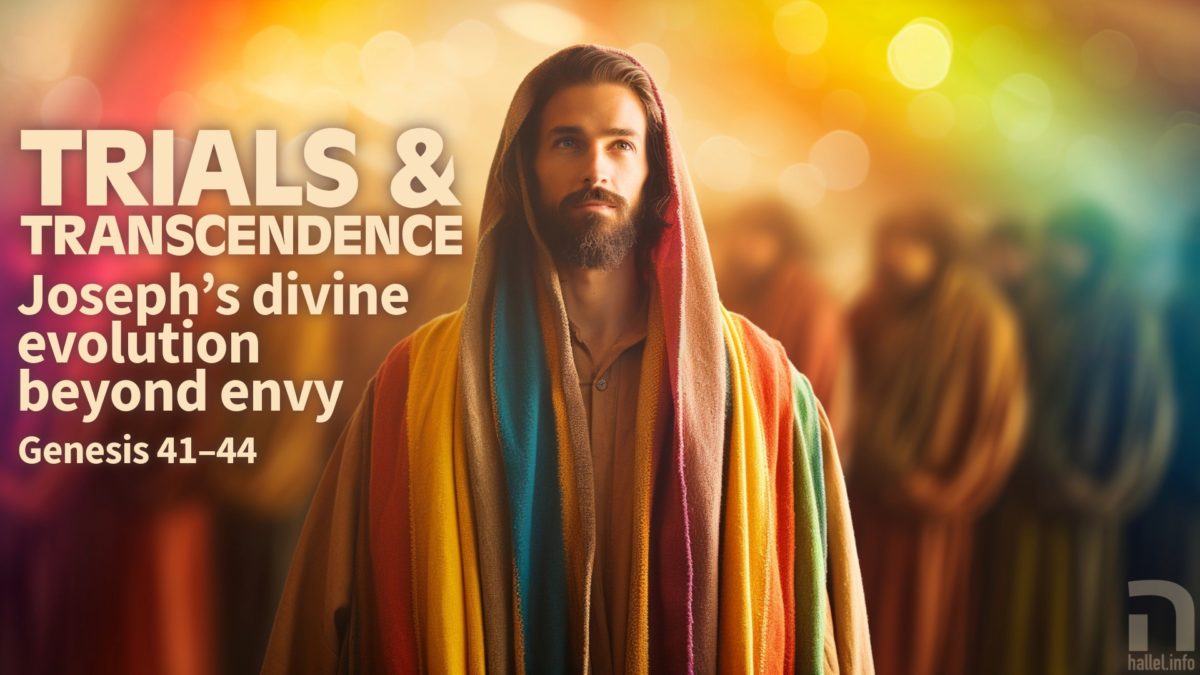Ancient Israel’s crossing of the Red Sea while being pursued by the army of then-superpower Mitzraim (Egypt), recorded in Torah reading בְּשַׁלַּח Beshalach (“when he sent” or “after he had let go,” Exodus 13:17–17:16), is a key example of God’s supremacy over worldly powers. This study explores a parallel between Heaven’s mastery over that sea and the mastery of Messiah Yeshua (Christ Jesus) over the tempestuous waters of the Sea of Galilee. We investigate how ancient Israel and Yeshua’s apostles were prepared for trusting in God when all seems hopeless, and how this spiritual discipline trains us for the massive and mundane struggles we face today.
